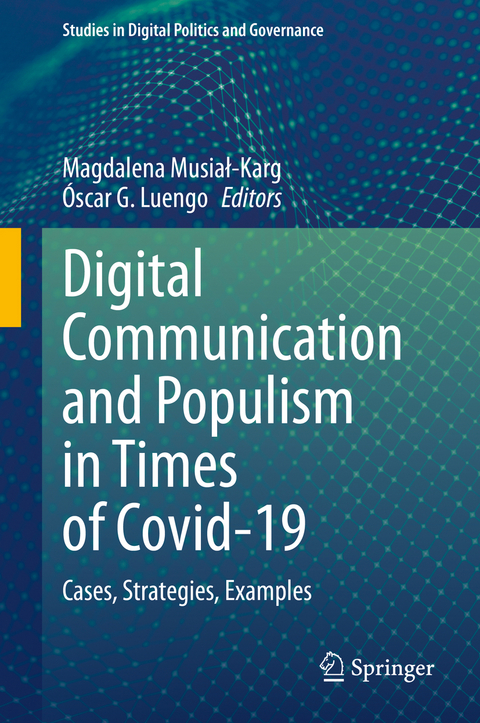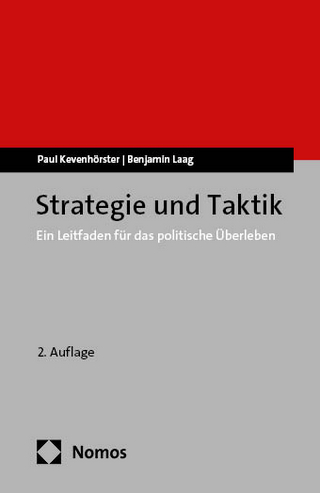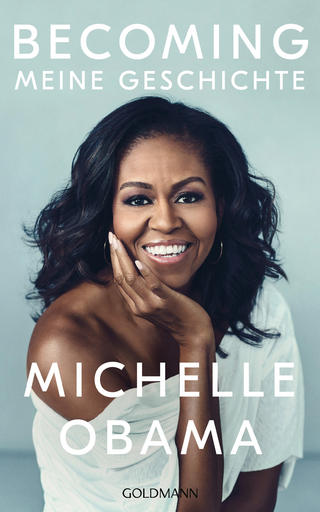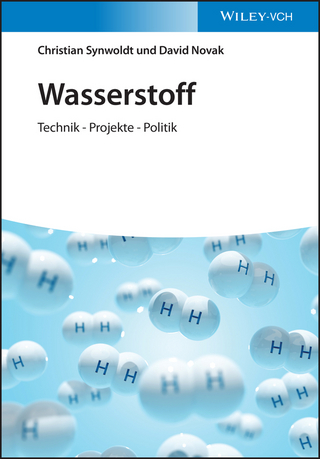
Digital Communication and Populism in Times of Covid-19
Springer International Publishing (Verlag)
978-3-031-33715-4 (ISBN)
The COVID-19 (SARS-CoV-2) pandemic significantly accelerated the technological revolution presenting many social, economic, and political challenges, as it pushed the world into cyberspace to ensure social distancing. At the same time, many populist protests expressed in the digital public sphere massively gained importance during the lockdowns. As a result, one of the most significant consequences of using electronic tools is not only greater e-participation of citizens, but - especially evident through elections during a pandemic - even greater transfer of political communication and election campaigns into the space of new media. The book broadly analyses various contexts of digitalization of communication processes and populist politics from both theoretical and empirical perspectives in various case studies on the digitalization of information, communication, or participation processes during the COVID-19 pandemic in selected European countries and beyond.
This book will appeal to students, researchers, and scholars of political communication, political science, electoral studies, digital politics, and democracy, as well as policy-makers interested in a better understanding of digital communication and populism during the Covid-19 pandemic.
Magdalena Musiał-Karg is a full professor of political science. She works at the Department of Political Systems, Faculty of Political Science and Journalism, Adam Mickiewicz University in Poznań, Poland. She is the Vice-Dean for Research and Scientific Cooperation at the Faculty of Political Science and Journalism, Adam Mickiewicz University in Poznań, and a former Vice-Dean for Research and Development (2016-2020). She is also the President of the Polish Political Science Association, Vice-Chair of the Research Committee on Political Communication (RC22) of the International Political Science Association (IPSA), member of the Political Sciences Committee of the Polish Academy of Sciences (2020-2023), and the President of the Center for European Research and Education. She was a holder of a PhD scholarship under the "Europa Fellows II" Programme financed by the German Federal Ministry of Education and Research and under the Osteuropa Programme financed by KAAD. In 2014, she was awarded with a 3-year stipend for young distinguished scientists funded by the Polish Minister of Science and Higher Education. Her main research interests focus on direct democracy and the impact of modern technologies (ICT) on democratic systems, mainly on the electoral process (e-voting). She has also conducted research on the role of women in public space. M. Musiał-Karg is the author of numerous publications devoted to electronic participation, alternative voting methods, direct democracy or political communication. Óscar G. Luengo is a full professor at the Department of Political Science and Public Administration, at the Faculty of Political Science and Sociology at the University of Granada, Spain. He is the Coordinator of the Summer Schools in Methodology of the International Political Science Association (IPSA), and former Vice-dean for International Relations at the Faculty of Political Science and Sociology. He was a distinguished visiting scholar at Florida International University, as well as a research fellow at the University of Machala (Ecuador), Amsterdam School of Communication Research (The Netherlands), University of Mainz (Germany), European University Institute (Italy) and University Tecnológica de Monterrey (México). Prof. Luengo was a visiting professor at many foreign universities: the University of California, Berkeley (US), Ritsumeikan University (Japan), Florida International University (USA), University of Saint Louis (USA), University of Anadolu (Turkey), University of Plzen (Czech Republic), University of Buenos Aires (Argentina), and Adam Mickiewicz University in Poznań (Poland). His main research areas focus on political communication, campaigns, and electoral analysis. Further, he is researching new media impact on civic participation and democracy.
Chapter 1. The Digital Present and the Future of Political Communication; Introduction and Prospects.- Part 1. Digital Methodologies.- Chapter 2. New Methodological Perspectives in Political Communication Research: Machine Learning and Algorithms.- Chapter 3. Feminist Framing in Times of Pandemic: an Analysis of the Spanish Case.- Chapter 4. Ten Years of Immigration: Ten Years of Polarisation? Natural Language Processing Techniques for the Study of the Andalusian Case.- Part 2. Case Studies.- Chapter 5. Social Media as an Information and Voter Activity Tool on the Example of the 2020 Presidential Election in Poland.- Chapter 6. Digital Disinformation During the 2020 Parliamentary Elections in Lithuania.- Chapter 7. Mexico's Governmental Communication Strategy "Las Vespertinas" in Times of COVID-19: Crises and Strategies of a Populist Government.- Chapter 8. Polish Deputies Support to the Anti-vaccination Movement in Social Media. The Case of Confederation Leaders.- Chapter 9. Memory and Remembrance in Digital Populist Discourse in Times of COVID-19 Pandemic: Case Study of @TPPatriots (Tea Party Patriots) Activity on Twitter.- Chapter 10. The Anti-feminist Agenda of the Spanish Populist Radical Right in Times of COVID-19 Crisis: a Comparative Approach.- Chapter 11. Rise of E-citizens in Croatia - a Case Study of the Croatian Main eGovernment Platform During the Time of the Pandemic.- Part 3. Reflections on Social Changes and Future Directions and Challenges.- Chapter 12. Distributed, Decentralized Registries and Digital State. Are We Moving Toward a Blockchain Democracy?.- Chapter 13. Development of Central Bank Digital Currency as a Payment Method for the SARS-COV-2 Virus Pandemic.- Chapter 14. Populism, Political Legitimacy & Digital Communication: An Alternative Conversation.
| Erscheinungsdatum | 15.09.2023 |
|---|---|
| Reihe/Serie | Studies in Digital Politics and Governance |
| Zusatzinfo | VI, 207 p. 33 illus., 21 illus. in color. |
| Verlagsort | Cham |
| Sprache | englisch |
| Maße | 155 x 235 mm |
| Gewicht | 449 g |
| Themenwelt | Sozialwissenschaften ► Politik / Verwaltung ► Allgemeines / Lexika |
| Sozialwissenschaften ► Politik / Verwaltung ► Politische Theorie | |
| Sozialwissenschaften ► Politik / Verwaltung ► Staat / Verwaltung | |
| Sozialwissenschaften ► Politik / Verwaltung ► Vergleichende Politikwissenschaften | |
| Schlagworte | Anti-vaccination movements • Blockchain democracy • Blockchain democracy • Covid-19 • Digital disinformation • Digitalization • digital state • E-Citizens • eGovernment • Elections • Feminist framing • Governmental communication strategy • Pandemic • polarization • Political communicaton research • Political legitimacy • Populism • Radical Right • Social Media • Tea Party Patriots |
| ISBN-10 | 3-031-33715-8 / 3031337158 |
| ISBN-13 | 978-3-031-33715-4 / 9783031337154 |
| Zustand | Neuware |
| Haben Sie eine Frage zum Produkt? |
aus dem Bereich


